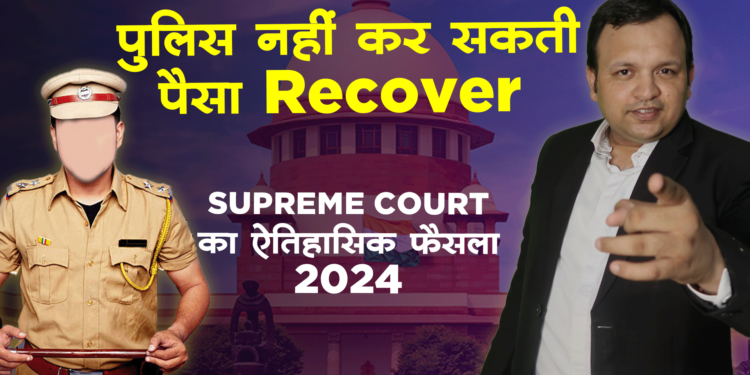Introduction:
We delve into a crucial legal matter regarding false accusations and police actions. Imagine a scenario where you haven’t engaged in any financial transaction with someone, yet they falsely accuse you of wrongdoing. Subsequently, the police arrive at your doorstep or business and threaten arrest unless you pay them a sum of money. Can the police do this? Do they have the authority to demand payment and make arrests based on unfounded claims? These are the questions we seek to answer, particularly in light of a landmark judgment by the Honorable Supreme Court of India in 2024.
To learn more about the topic, read the blog till the end, and if there lies any more doubt, feel free to reach out to us at; https://thelegalshots.com/legal-opinion/
Case Title- Lalit Chaturvedi V. State of U.P, 2024
The case revolves around a businessman, Mr. Chaturvedi, from Uttar Pradesh, who was accused of cheating and breach of trust by a petitioner. The petitioner alleged that Mr. Chaturvedi had failed to fulfill a business transaction, resulting in financial loss and deceit. Consequently, the petitioner sought legal action under sections 406 and 506 of the Indian Penal Code (IPC). However, upon police investigation, it was unclear if any criminal offense had been committed.
Mr. Chaturvedi then approached the High Court to challenge the accusations and invoke the powers under section 482 of the Code of Criminal Procedure (CRPC). However, the High Court dismissed his plea, stating that the allegations against him were serious and warranted further investigation. Undeterred, Mr. Chaturvedi appealed to the Supreme Court, which raised two pivotal questions: first, whether Mr. Chaturvedi had indeed cheated the petitioner, and second, whether his actions amounted to a breach of trust.
To establish a charge of cheating under section 420 of the IPC, the Supreme Court emphasized the need to prove inducement, fraudulent activity, and the delivery of property or valuable securities. In this case, the Court found no evidence of such actions and deemed the dispute a civil matter of breach of contract, not criminal.
Similarly, regarding the charge of criminal breach of trust under section 406 of the IPC, the Court ruled that there was no entrustment of property, as the transaction was merely a sale of goods. Therefore, the actions of Mr. Chaturvedi did not fall under the purview of section 406.
Ultimately, the Supreme Court quashed the FIR against Mr. Chaturvedi, highlighting that the police are not authorized to recover money like a civil court. They can only determine if a crime has been committed. If recovery is sought, the proper recourse is through civil litigation.
Conclusion –
This case serves as a reminder of the importance of understanding legal nuances and seeking appropriate legal redressal for disputes. It also clarifies the limitations of police authority in matters of financial disputes, emphasizing the need for due process and judicial oversight.
To understand more such complex law in simple ways, stay connected with www.thelegalshots.com .
If doubts still persist, contact our Legal Experts at https://thelegalshots.com/legal-opinion/



